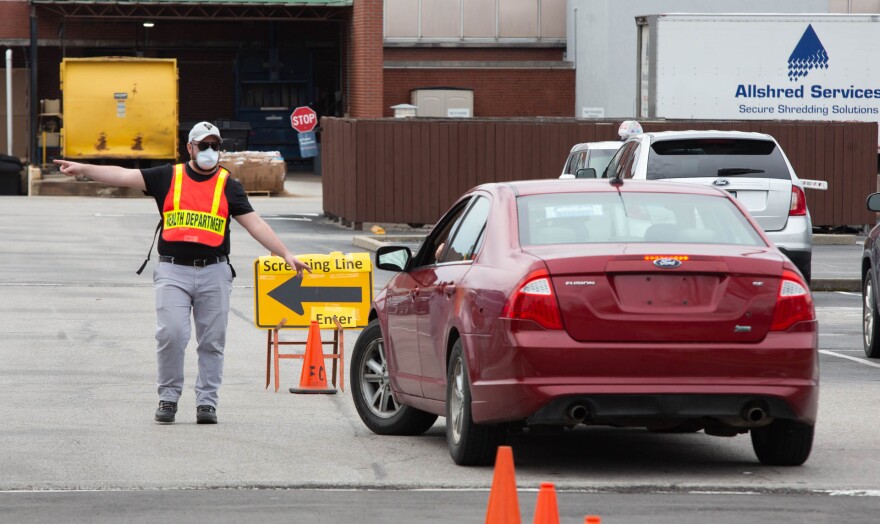Louisville health officials say primary care physicians should be on the lookout for increased symptoms of COVID-19 long-haul syndrome.
The syndrome can include headaches, weakness, fatigue, shortness of breath and complications with other underlying health conditions like diabetes.
Jefferson County health officials said during a weekly briefing Tuesday that at least one in 10 people who get COVID will have longer-lasting symptoms. The risk increases threefold when a person is unvaccinated, said Dr. Joseph Flynn, chief administrator at Norton Medical Group.
It can affect people for weeks to months after their initial infection and can be severe even if a person had mild or no symptoms, or didn't know they ever had the virus.
“There's a lot of people who have had COVID that didn't go in and get tested, they just didn't feel sick enough to go in to be seen,” Flynn said. Those people that were never formally tested can most assuredly get long COVID syndrome.”
Louisville residents Demetrius Booker and Jody Demling also spoke during the briefing, telling stories of their battles with the virus early in the pandemic.
Booker had been sick for several days in July 2020, with shortness of breath, extreme fatigue and a relentless fever, before he eventually went to the emergency room in Louisville.
Doctors said if he’d waited another 24 hours, he could have died at home. He said he was scared.
The next thing Booker remembered was waking up in a hospital in Lexington; it was September. In total, he was in the hospital 95 days – much of it in a medically-induced coma.
“It was a long and just really tough journey, through my entire stay,” he said.
Doctors told him if he gets sick like that again, he may not survive. Booker said when he later got the chance to be vaccinated and boosted, he took it.
Demling’s COVID symptoms started in late March 2020. A few days later, he was so weak he couldn’t get out of bed when EMS came.
It would be months before he started getting back to being able to do things he had done before. Though his medical team told him his heart and lungs look OK, Demling still has moments when things don’t feel right.
Dr. Christian Furman, medical director at the University of Louisville Trager Institute, said primary care providers need to be on the lookout for the symptoms, especially as more people are expected to have them in the wake of the omicron surge.
“They need to be prepared for this,” Furman said. “Our health care system has been stressed from the beginning, and I think this is going to stress the health care system even more.
“More and more patients are coming in just complaining of stuff; they don't know what it is. And I think if they could connect it to COVID, it would help everybody at least name it.”
Both Norton Healthcare and University of Louisville Health have facilities dedicated to identifying and treating symptoms of long COVID.


